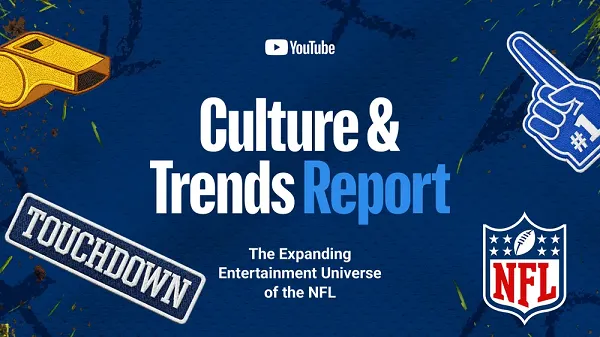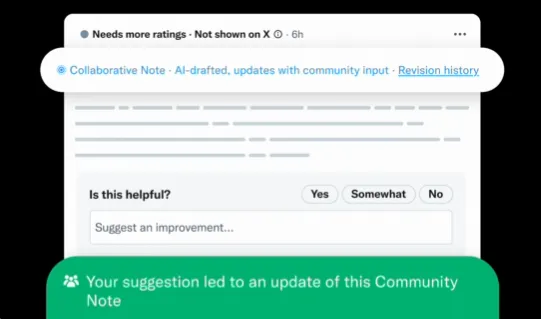11 best email marketing tools for restaurants in 2025
Email marketing for restaurants can be challenging with all its unique responsibilities.
-Oct-23-2025-06-26-28-6723-PM.webp)
Email marketing for restaurants can be challenging with all its unique responsibilities. You're managing fluctuating customer traffic, promoting time-sensitive specials and events, coordinating reservations across multiple channels, competing for attention in crowded local markets, and building loyalty programs that keep diners coming back. Email marketing tools solve these problems by automating reservation confirmations, segmenting customers by dining preferences and visit frequency, and promoting specials when customers are most likely to book. The right platform helps you fill tables during slow periods, increase average order values, and turn one-time visitors into regulars. In this guide, you‘ll find a detailed comparison table of 11 email marketing platforms, feature breakdowns for each tool, benefits specific to restaurants, a step-by-step selection guide, and answers to common questions. Here’s what matters: restaurants using email marketing can see an average of 3-5x ROI, with targeted campaigns driving up to 25% more repeat visits. HubSpot is used by restaurant groups worldwide—from single-location eateries to multi-unit chains—who rely on the platform's integrated CRM and marketing automation to increase reservations and build customer loyalty. Table of Contents Email marketing for restaurants is a key way to stay connected with diners through targeted campaigns. You use it to promote daily specials, announce new menu items, send reservation reminders, share exclusive offers, celebrate customer birthdays, and drive traffic during slow periods with strategic promotions. Email Marketing Tool Best For Key Features Pricing Average Rating HubSpot Multi-location restaurant groups Free CRM, reservation tracking, loyalty automation, revenue attribution Free; Available with Marketing Hub; Starter $9/month per seat 4.4/5 Mailchimp Independent restaurants and cafes Templates, automation, segmentation, journey mapping Free; Essentials $13/month 4.3/5 Constant Contact Restaurants prioritizing ease of use Drag-and-drop builder, event marketing, live support Starts at $12/month 4.0/5 ActiveCampaign Restaurants needing advanced automation Guest scoring, SMS integration, conditional workflows Starts at $15/month 4.6/5 Klaviyo Restaurants with online ordering Advanced segmentation, predictive analytics, revenue tracking Free; Email $45/month 4.6/5 Brevo Growing restaurant groups needing SMS Email + SMS, transactional emails, unlimited contacts Free; Starter $8.08/month 4.5/5 Omnisend Restaurants with e-commerce components Omnichannel automation, product recommendations Free; Standard $11.20/month 4.5/5 Square Marketing Restaurants using Square POS Native POS integration, automated campaigns, customer insights Starts at $45/month 4.3/5 Toast Marketing Restaurants using Toast POS Toast POS integration, guest data sync, automated campaigns Custom pricing 4.5/5 Moosend Budget-conscious restaurants Unlimited emails, automation, landing pages Free; Pro $9/month 4.6/5 GetResponse Restaurants hosting events Webinar/event hosting, automation, conversion funnels Email $15/month 4.2/5 Here are the top email marketing platforms that work well for restaurants, cafes, bars, and hospitality businesses. Best For: Multi-location restaurant groups that need CRM, marketing automation, and reservation tracking in one platform Key HubSpot Features: HubSpot Pricing: Best For: Independent restaurants and cafes that want easy-to-use automation with food and beverage templates Key Mailchimp Features: Mailchimp Pricing: Best For: Restaurants that want simple email marketing with strong customer support and event promotion tools Key Constant Contact Features: Constant Contact Pricing: Best For: Restaurants that need sophisticated automation and guest scoring for VIP programs and personalized marketing Key ActiveCampaign Features: ActiveCampaign Pricing: Best For: Restaurants with online ordering and delivery that need advanced segmentation and revenue attribution Key Klaviyo Features: Klaviyo Pricing: Best For: Growing restaurant groups that need email and SMS in one platform with pricing based on sends, not contacts Key Brevo Features: Brevo Pricing: Best For: Restaurants with merchandise, meal kits, or packaged goods that need e-commerce email marketing Key Omnisend Features: Omnisend Pricing: Best For: Restaurants using Square POS that want native integration with their point-of-sale system Key Square Marketing Features: Square Marketing Pricing: Best For: Restaurants that want deep integration with their restaurant management system Key Features: Pricing: Best For: Budget-conscious restaurants that want powerful automation at low cost Key Features: Pricing: Best For: Restaurants hosting cooking classes, wine tastings, and special events that need event management Key GetResponse Features: Pricing: Stop relying on walk-ins during off-peak hours. Email marketing software promotes strategic offers during slow day parts and days of the week. Restaurants increase weekday lunch traffic significantly by using targeted slow-period promotions. Send timed campaigns that reach customers when they're planning their meals. Email keeps you top of mind and turns first-time visitors into regulars. Automated loyalty campaigns reward repeat visits and celebrate milestones. Restaurants increase repeat visit frequency through strategic email loyalty programs. Create VIP experiences that make guests feel valued. Identify high-value menu items and promote them to the right customers at the right time. Restaurants boost average check sizes by 20-30% using AI-powered systems like personalized menu recommendations in email. Suggest appetizers, premium entrees, and desserts based on past ordering behavior. Automated reminder emails and SMS reduce forgotten reservations. Restaurants decrease no-show rates with automated confirmation and reminder sequences. Send reminders 24 hours before reservations with easy modification options. Turn your customer database into a revenue channel. Email campaigns drive reservations, online orders, gift card sales, and merchandise purchases. See exactly which promotions generate the most revenue and optimize accordingly. Document all customer touchpoints, including reservation confirmations, post-visit thank-you messages, birthday offers, loyalty rewards, event promotions, daily specials, seasonal menu launches, and win-back campaigns for lapsed customers. Identify what's manual and what could be automated. Quick-service restaurants need online ordering integration and mobile optimization. Fine dining establishments need a reservation system integration and VIP guest management. Restaurant groups need multi-location capabilities and centralized reporting. List your absolute requirements versus nice-to-haves. Test platforms during free trials. Can your team create campaigns independently between service shifts, or will you need ongoing support? Constant Contact and Mailchimp suit beginners. ActiveCampaign and HubSpot offer more power but require more expertise. Calculate costs as your customer database grows over 12-24 months. Some platforms charge per contact, others per email sent. Project your list size (including email captures from reservations, WiFi signups, and loyalty programs) and check pricing at that volume. Include costs for SMS messaging. Pick a platform that scales without forcing you to migrate later. HubSpot supports restaurants from single locations through multi-unit chains with one unified platform. Start with the free tier, then upgrade as you grow — no data migration required. Set a clear objective before creating content. Are you filling tables during slow periods? Promoting a new menu? Building your loyalty program? Generating gift card sales? Re-engaging lapsed customers? Clear goals guide everything from subject lines to offers. Divide contacts into targeted groups: first-time visitors versus regulars, lunch versus dinner customers, dietary preferences (vegetarian, gluten-free, etc.), high spenders versus value seekers, and inactive guests. [Segmented restaurant campaigns] [generate 65% higher open rates] [than generic broadcasts]. Build templates that showcase your food beautifully while displaying properly on smartphones (where 75% of restaurant emails are opened). Use high-quality food photography, single-column layouts, clear hierarchy, and large tap-friendly buttons for reservations. Communicate value and urgency immediately. Examples: “Tonight Only: 20% Off All Wine,” “Your Birthday Dinner is On Us,” “New Fall Menu Just Dropped,” or “Table for 2 Available This Saturday.” Keep subject lines under 40 characters and include time-sensitive language. Direct recipients toward one primary action: make a reservation, order online, buy a gift card, register for an event, or redeem an offer. Multiple CTAs create confusion. Place your primary CTA prominently with contrasting colors and action-oriented text. Configure triggered follow-ups based on guest behavior. Send thank you emails within 24 hours of dining. Follow up with review requests 2-3 days later. Create win-back campaigns for guests who haven't visited in 30-60-90 days with escalating offers. Track opens, clicks, reservations, and revenue generated. Test different send times to find when your customers are most likely to engage. Many restaurants see best results sending lunch promotions Tuesday-Thursday mornings and dinner promotions Thursday-Friday afternoons. HubSpot is the best email marketing tool for restaurants because it combines email, SMS, CRM, and reservation tracking in one platform. The free tier includes unlimited contacts, email marketing, forms, landing pages, and CRM—accessible for single-location restaurants and small chains. Multi-location groups benefit from revenue attribution that connects campaigns to reservations and online orders by location. Restaurant groups using HubSpot increased repeat customer visits through automated loyalty campaigns and personalized offers. Look for POS integration, reservation system integration, SMS capabilities, segmentation by dining preferences, automated birthday campaigns, mobile optimization, behavioral automation, A/B testing, revenue attribution, and event marketing tools. POS integration automatically syncs customer data without requiring manual exports. SMS capabilities matter for time-sensitive promotions and reservation confirmations. Mobile optimization is essential because 50-60% of emails are opened on mobile devices. Yes, HubSpot is excellent for restaurants. It provides a single platform for marketing, reservations, and guest management, specifically designed for hospitality businesses. The free CRM tracks every customer interaction, including visit history, favorite dishes, dietary restrictions, and spending patterns. Marketing automation enables the creation of workflows for reservation confirmations, post-visit thank-you messages, and loyalty rewards, eliminating the need for technical expertise. Multi-location restaurant groups increased online ordering revenue by using HubSpot's automated campaigns and segmentation. Single locations start free, then scale up as they grow. Email marketing software costs $0-$3,600+ monthly, depending on customer database size, features, and restaurant scale. Free tiers support typically 250-1,000 contacts with basic features. Entry-level paid plans cost $12-$ 29 per month for under 1,000 contacts. Mid-market restaurants with 2,500-5,000 contacts typically spend $50-$ 200 per month. Large restaurant groups with 10,000+ contacts invest $ 500-$3,600+ per month. Some platforms charge per contact, others per email or SMS sent—compare carefully as your list grows. Build email lists through WiFi signup forms that require email addresses for access, table-side tablet signups offering birthday rewards, reservation system integrations that automatically capture emails, point-of-sale prompts during checkout, website popups offering first-visit discounts, social media contests requiring email entries, and in-store signage promoting loyalty programs. Restaurants grow email lists 3-5x faster using multiple capture points throughout the customer journey. Always provide clear value in exchange for email addresses. HubSpot combines email marketing, SMS, CRM, and reservation tracking into a single platform designed specifically for hospitality businesses. Over 184,000 businesses trust HubSpot worldwide because it eliminates the need for multiple disconnected tools. Key HubSpot Features for Restaurants: HubSpot's Impact on Restaurants: Multi-location restaurant groups increased repeat customer visits with HubSpot's automated loyalty campaigns that reward visit frequency and spending milestones. Restaurants using HubSpot generated more online ordering revenue by segmenting customers by order history and sending personalized menu recommendations. Independent restaurants reduced no-show rates by using HubSpot's automated confirmation and reminder sequences via email and SMS. Restaurant chains saved 15 hours weekly per location by automating birthday offers, post-visit thank you messages, and win-back campaigns. HubSpot's free tier offers complete CRM and email marketing capabilities without requiring a credit card. Paid tiers start at $9 per month and scale up to enterprise solutions, featuring advanced analytics, multi-location reporting, and API integrations with major POS and reservation systems. Ready to fill more tables and build customer loyalty? Get started with HubSpot's free platform or schedule a demo to see how it works for restaurants like yours.
What is email marketing for restaurants?
Comparison Table: Best Email Marketing Software for Restaurants
Best Email Marketing Software for Restaurants
1. HubSpot

2. Mailchimp

3. Constant Contact

4. ActiveCampaign

5. Klaviyo

6. Brevo

7. Omnisend

8. Square Marketing

9. Toast Marketing

10. Moosend

11. GetResponse

Benefits of Email Marketing Software for Restaurants
Fill tables during slow periods.
Build a loyal regular customer base.
Increase average order values.
Reduce no-shows and cancellations.
Generate revenue from your email list.
10 Important Features for Restaurant Email Marketing Software
POS integration – Sync customer data from your point-of-sale system automatically
Reservation system integration – Connect with OpenTable, Resy, or proprietary booking systems
SMS capabilities – Send text messages for time-sensitive promotions and confirmations
Segmentation by dining preferences – Target customers based on dietary needs, favorite dishes, and visit patterns
Automated birthday campaigns – Trigger special offers on customer birthdays automatically
Mobile optimization – Display properly on smartphones where 75% of restaurant emails are opened
A/B testing – Test subject lines, send times, and offers to improve performance
Behavioral automation – Trigger follow-ups based on reservations, orders, and website visits
Revenue attribution – Track which campaigns drive reservations and online orders
Event marketing tools – Promote and manage special events, tastings, and private parties
How to Choose an Email Marketing Tool for Restaurants (Step-by-Step)
Step 1: Map your restaurant marketing workflows.
Step 2: Identify must-have features based on your restaurant type.
Step 3: Compare ease of use and team fit.
Step 4: Check cost at scale.
Step 5: Choose a flexible platform — like HubSpot
How to Create Email Marketing Campaigns for Restaurants
Define your campaign goal and target audience.
Segment your customer list.
Design appetizing, mobile-optimized templates.
Write subject lines that drive action.
Include one clear call-to-action.
Set up automated follow-up sequences.
Monitor performance and adjust timing.
Frequently Asked Questions
What is the best email marketing tool for restaurants?
What features should I look for in email marketing tools for restaurants?
Is HubSpot good for restaurants?
How much does email marketing software for restaurants cost?
How can restaurants build their email lists?
Meet HubSpot, the Top Email Marketing Choice for Restaurants

 JimMin
JimMin 










![TikTok Content Trends to Watch in 2025: What’s Next for Creators? [Expert Insights]](https://www.hubspot.com/hubfs/Untitled%20design%20%2873%29.jpg)




















